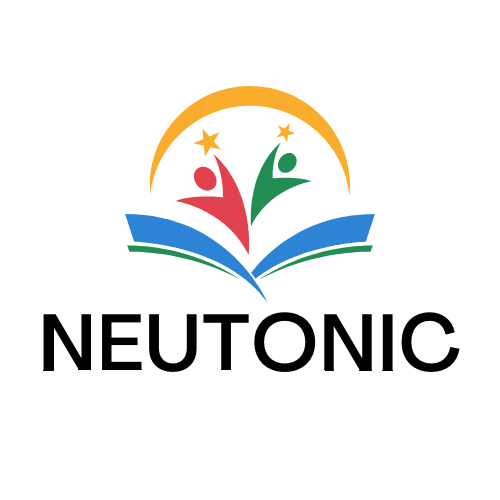In a world where toddlers can expertly navigate tablets before they can tie their shoelaces, the importance of early childhood education centers has never been clearer. These vibrant spaces aren’t just glorified playrooms; they’re the launchpads for lifelong learning. Imagine a place where curiosity reigns, friendships blossom, and every crayon scribble is a step toward academic success.
What Is an Early Childhood Education Center?
An early childhood education center serves as a structured environment for children ages six weeks to eight years. These centers focus on holistic development, combining emotional, social, cognitive, and physical growth. Educators create engaging programs that cater to various learning styles, allowing each child to thrive.
Learning experiences often include games, art, music, and literacy activities. Caregivers foster an atmosphere of exploration, encouraging curiosity and creativity. Children form critical social skills through interactions with peers.
Typically, early childhood education centers prioritize play-based learning, recognizing its significance in skill development. Through guided play, children enhance problem-solving abilities and develop independence. Structured routines help instill discipline and a sense of security.
Quality centers employ qualified staff members who specialize in early childhood education. These professionals understand child development stages and create age-appropriate curricula. They monitor each child’s progress, ensuring individualized attention.
Parents benefit from early childhood education centers as well. Regular communication ensures parents stay informed about their child’s development and milestones. Centers often provide resources or workshops, supporting parents in their educational journey.
Early childhood education centers offer enriching environments that lay the foundation for lifelong learning and success. Each child’s unique interests and abilities are nurtured, preparing them for future educational endeavors.
Early Childhood Education Center

Early childhood education sets the stage for lifelong learning and plays a crucial role in child development. Research consistently shows that quality early learning experiences can significantly impact a child’s future success.
Cognitive Development
Cognitive development encompasses critical thinking, problem-solving, and language skills. Engaging in play-based activities encourages children to think creatively and build connections between concepts. Programs that include puzzles, storytelling, and hands-on experiments are especially effective. Educators assess individual learning styles, allowing for tailored approaches that optimize growth. Early exposure to diverse learning opportunities promotes curiosity and a love for knowledge, laying a robust foundation for academic success.
Social Skills Development
Social skills development occurs as children interact with peers and educators. These interactions foster cooperation, communication, and conflict resolution. Programs that encourage group activities help children learn to share, take turns, and express their feelings. Building friendships within a supportive environment enhances emotional intelligence and empathy. Frequent collaboration and team projects enable kids to understand diverse perspectives, creating a foundation for healthy adult relationships. The skills gained during these formative years play a significant role in later social interactions and networking opportunities.
Key Features of Quality Early Childhood Education Centers
Quality early childhood education centers exhibit essential features that significantly enhance child development and learning outcomes. Two of the most important aspects include trained educators and a safe, stimulating environment.
Trained Educators
Trained educators play a crucial role in early childhood development. They possess the knowledge and skills necessary to foster individual learning styles among children. Educators design tailored activities that engage and challenge young learners. They continuously assess each child’s progress, ensuring that developmental milestones are met. Furthermore, ongoing professional development keeps staff informed about the latest educational strategies and child development theories. Engaging with families is integral to their approach, as communication enhances the supportive home environment coupled with educational activities.
Safe and Stimulating Environment
A safe and stimulating environment is vital for optimal learning in early childhood education centers. Safety measures ensure that children explore without risks, allowing parents to feel secure. Stimulating surroundings include age-appropriate materials and resources that encourage creativity and exploration. Well-defined areas for play and learning promote interactive experiences, fostering curiosity and social skills. Nature-based elements, such as outdoor play areas or gardens, enhance sensory experiences and physical activity. Overall, the environment significantly influences children’s emotional well-being and eagerness to learn.
Selecting the Right Early Childhood Education Center
Choosing an appropriate early childhood education center significantly impacts a child’s development. Consider various aspects to ensure the best match for individual needs.
Factors to Consider
Location ranks high on the priority list. Proximity to home or work ensures convenience for daily schedules. Tuition fees also play a vital role; families should evaluate their budget to find suitable options. Program types vary, so reviewing play-based and structured environments helps identify alignment with educational philosophies. Safety standards must be a priority; centers should have secure access and emergency preparedness plans. Credentials of educators are essential; trained professionals contribute positively to a child’s development through tailored instruction and care.
Visiting and Interviewing Centers
Visiting centers provides firsthand insight into their environments. Observing interactions between educators and children offers an understanding of engagement levels. Asking about curriculum and daily routines helps gauge whether the programs align with a child’s needs. Inquiring about staff qualifications and training ensures that educators are equipped to foster learning effectively. Communication with parents is crucial; inquire about how centers keep families informed about their child’s progress. Addressing these factors during visits allows parents to make informed decisions regarding the best option for their children.
Conclusion
Early childhood education centers play a vital role in shaping children’s futures. They provide essential support for emotional, social, cognitive, and physical development. By fostering a love for learning through engaging and play-based activities, these centers prepare children for the challenges ahead.
Parents who invest time in selecting the right center can significantly influence their child’s early experiences. Observing interactions and understanding the curriculum can help ensure a supportive environment tailored to each child’s needs. Ultimately, quality early childhood education not only nurtures individual growth but also lays a strong foundation for lifelong success.





